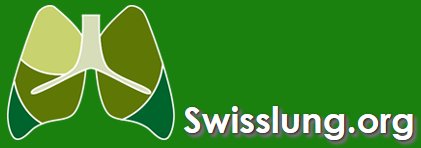Press release: ![]() Ally-Science_2019_PRESS_RELEASE_20190430.pdf123.46 kB
Ally-Science_2019_PRESS_RELEASE_20190430.pdf123.46 kB
Real-time data on pollen exposure is available for the first time in Switzerland. This is gathered on the Ally Science app, which has already found widespread use among allergy sufferers.
The already commonly used Ally Science app provides those who suffer from allergies with not only information on pollen exposure, but also now a symptom development report and a more precise symptom survey. As another recent addition, users can also now view the pollen concentration in Biel and Lucerne in real time. Other regions are due to be added.
The Ally Science app was launched in April 2018 by the Bern University of Applied Sciences (BFH) and University Hospital Zurich (USZ) to serve as the core component in Switzerland’s largest ever study into pollen. The app now features brand new functions. The most significant addition has been made possible by the Poleno – a measuring device from Lucerne-based start-up Swisens. It detects the current concentration of pollen in the air of the local surroundings, focusing specifically on the types of pollen most relevant to allergy sufferers. This represents a major breakthrough: The measuring method that had been used until now is based around identifying and counting pollen manually.
Consequently, it takes a couple of days before the measurement results are available.
The Ally Science app shows how much pollen and which types of pollen are currently in the air – initially for the cities of Biel and Lucerne, where a Poleno unit has been installed. Based on the tests so far, Swisens CEO Erny Niederberger is confident "that the devices will deliver high-quality real-time data." The data can be viewed on the app in the form of a map. It also shows the regions in which app users are currently registering symptoms, which can be done quickly and easily by swiping into the app's allergy diary. To allow for a more detailed analysis of symptoms, users are now asked to specify whether their allergy symptoms were experienced indoors or outdoors. Allergy sufferers can use the map to decide whether or not they wish to take preventative measures.
Another useful new feature of the app is a symptom development report for users, which can be exported as a PDF if required for a medical appointment. There is also a development display so users can track their symptoms across the entire year. Users who had been entering data into the app in 2018 will see a second curve indicating last year's pattern. This is hugely valuable for a potential medical consultation, particularly with reference to recommending treatment. Further to this, a link takes users straight to tips for pollen allergy sufferers found on the app from the aha! Swiss Allergy Centre.
Plans for 2020 include offering real-time pollen data for more regions, as well as a personalised pollen early warning indicator. Another reason to start using the Ally
Science app now. After all, the more allergy sufferers record their symptoms regularly, "the more detailed findings can be fed into the early warning system," explains Professor Serge Bignens, Head of the BFH Institute for Medical Informatics.
Ally Science – Pollen study conducted with and in the interest of allergy sufferers The Swiss Ally Science study project is reliant on the involvement of people with allergies. They can record their symptoms using the Ally Science app, which is available in five languages. The data is stored on the secure, user-specific MIDATA platform and incorporated into the pollen study in anonymised form. Around 8000 people contributed more than 24,000 symptom entries during the 2018 pollen season, including information on the frequency of individual symptoms. In the second phase of the project, which is now under way, the inclusion of real-time pollen data facilitates the analysis of links between symptoms recorded and the pollen actually present. The aim of the study is to develop pollen early warning systems and to improve advice and treatment.
For more information and photographs or to download the Ally Science app, visit:
Contacts for questions and interviews:
Ally Science app and MIDATA platform: Professor Serge Bignens, Institute for Medical Informatics I4MI, Bern University of Applied Sciences BFH, Biel,
Allergy study: Professor Peter Schmid-Grendelmeier, Allergy Station, Dermatology Clinic, Zurich University Hospital,
Real-time pollen measurement: Erny Niederberger, Swisens AG, Lucerne,
Ally Science is made possible by the support of the following project partners:
- aha! Swiss Allergy Centre, the independent foundation for people with allergic disorders, Bern
- SWISS LUNG, Swiss Lung Foundation
- Climate control specialist Dyson in Zurich, industry partner
- ETH Zurich
- University Hospital Zurich Foundation
- vitagate.ch
- City of Lucerne


